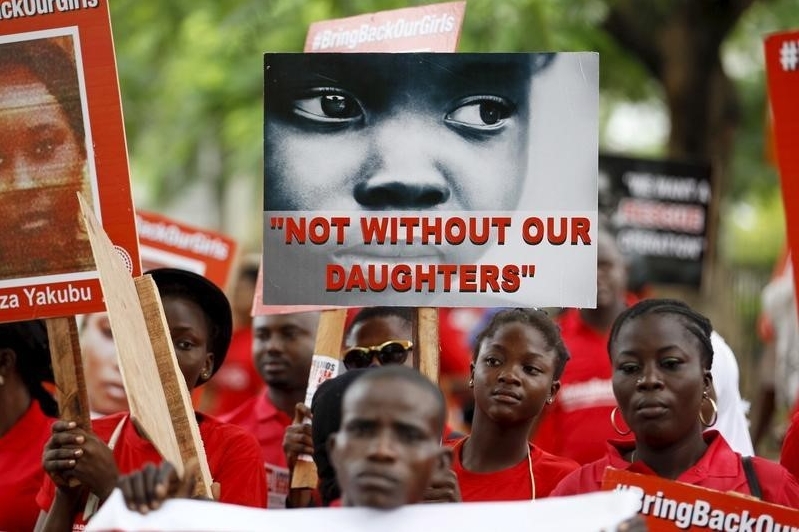
One of more than 200 schoolgirls missing for over two years after they were kidnapped by Boko Haram militants in Chibok in northeast Nigeria has been found and is currently in the care of a Christian organization.
According to persecution watchdog Open Doors USA, Esther was among hundreds of Christian females abducted by Boko Haram from the Chibok State Secondary School in 2014. The mass kidnapping shocked the world and sparked the hashtag #BringBackOurGirls.
While she was away, her parents remained at home, but later were forced to flee due to constant attacks from Boko Haram. Esther recently escaped the terrorist group, although the circumstances surrounding her freedom are unclear.
Eventually, Esther was taken to another country and promised by a family that they would take care of her and pay for her education - promises that unfortunately went unfulfilled. Due to economic difficulties, the family asked Esther to leave and search for her own family.
Thankfully, upon hearing her heartbreaking story, an elderly women took the young woman in: "Esther was overcome with thankfulness, yet as tears streamed down her face, her heart ached for her parents and at the hardships she'd experienced. She was feeling total abandonment," reads the Open Doors report.
Currently, Esther is connected with an Open Doors partner, and the organization is urging believers to pray she will comforted by the Lord and will be soon reunited her with her family.
Established in 2002, Boko Haram initially focused on opposing Western-style education. However, under the leadership of al-Barnawi, the terrorist group became more radical, carried out more killings and swore allegiance to ISIS in March 2015. Today, Boko Haram refers to itself as IS' "West African province".
Over the past seven years, the group has killed more than 20,000 people and drove more than 2.2 million from their homes in an effort to set up an Islamic state in the north.
Amina Ali, the first schoolgirl to escape the clutches of the terrorist group, last month told Reuters that may her classmates, who are being held in Sambisa forest, were starved and resorted to eating raw maize, and that some had died in captivity, suffered broken legs or gone deaf after being too close to explosions.
"I think about them a lot - I would tell them to be hopeful and prayerful," Ali said. "In the same way God rescued me, he will also rescue them."
She added, "I am not scared of Boko Haram - they are not my God."
Also last month, Boko Haram released a video showing a masked man standing in front of a group of about 50 Chibok girls, saying some of their classmates had been killed in airstrikes, while others have been married off to fighters.
Over the weekend, Boko Haram's embattled leader, Abubakar Shekau, appeared in a new video to deny reports of his death and to taunt the parents of the Chibok schoolgirls, CNN reports.
"To the despot Nigerian government: Die with envy. I'm not dead," Shekau says in the video before insisting the detained Boko Haram fighters must be released for the return of the schoolgirls.Meanwhile, the Nigerian army has insisted Boko Haram is significantly weakened and has been "irrational and unreliable" in negotiations over the schoolgirls.







